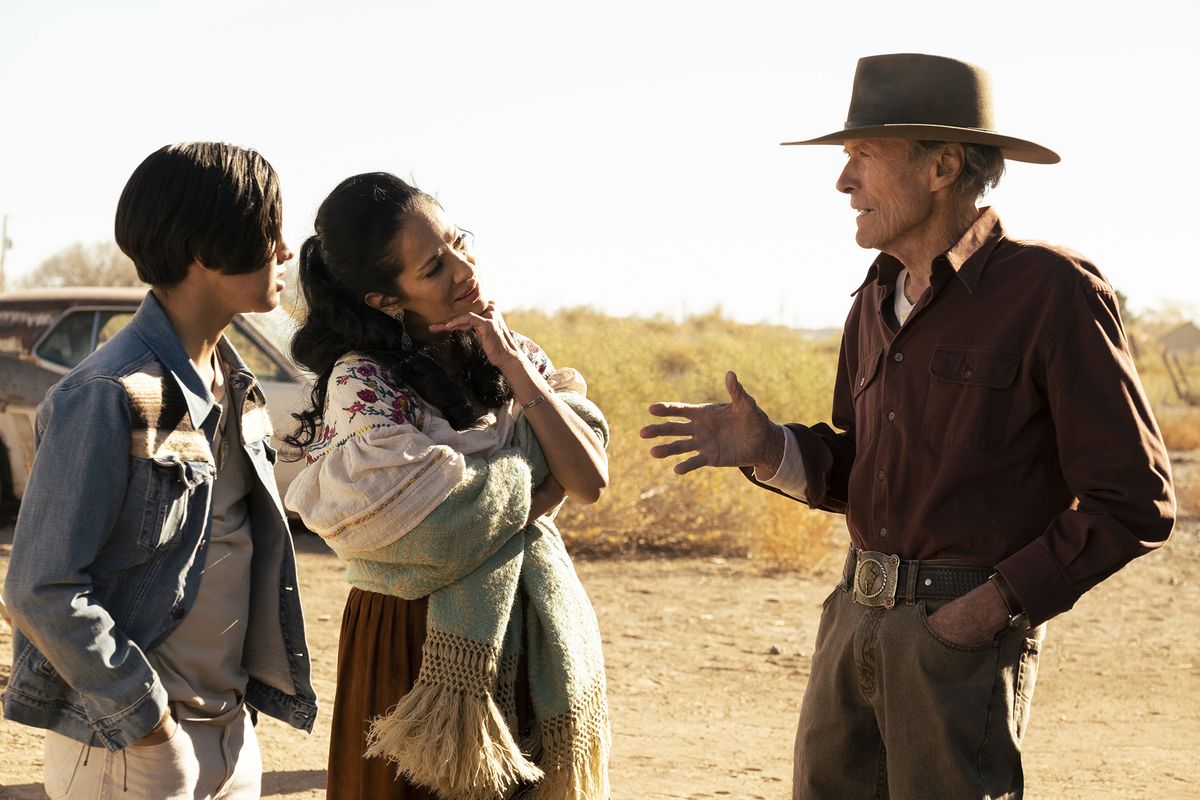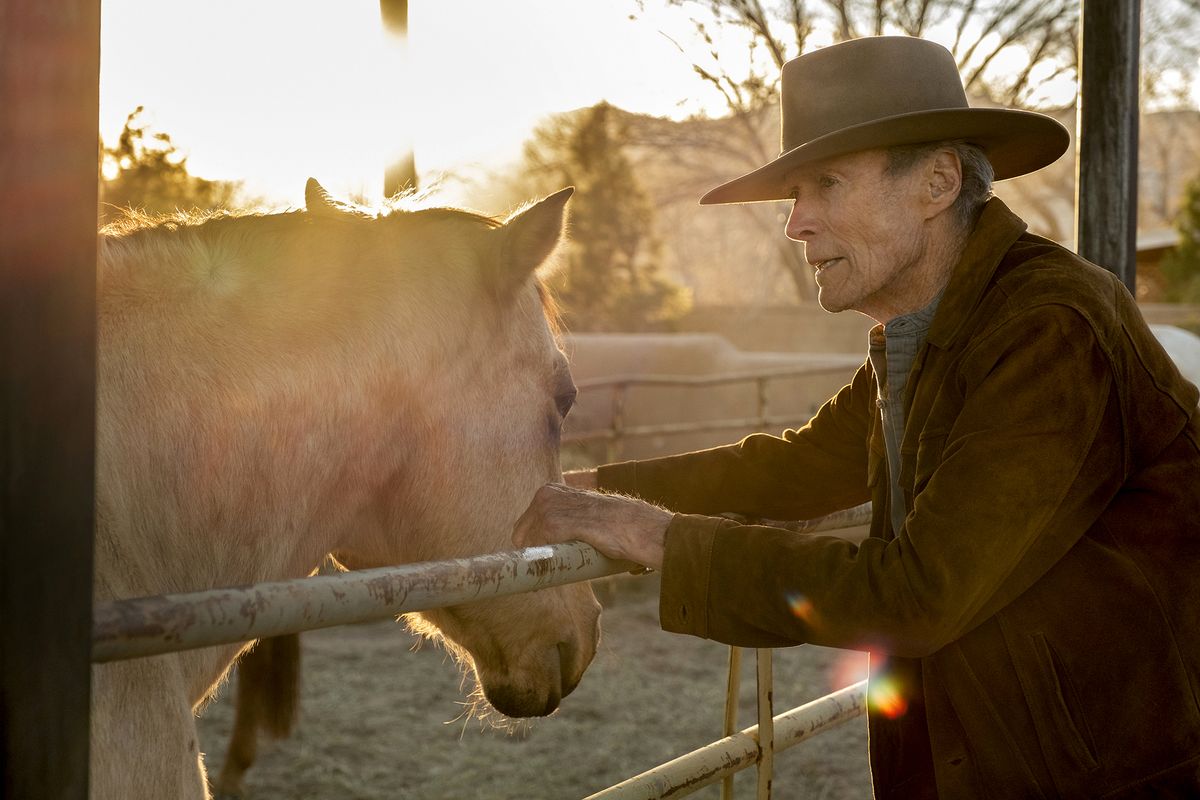Clint Eastwood is back in the saddle again in ‘Cry Macho,’ an overly familiar Western road movie
Eduardo Minett, Natalia Traven and Clint Eastwood in “Cry Macho.” (Claire Folger/Warner Bros. Pictures)
Anyone who’s been waiting for Clint Eastwood to return to his Western-movie roots will be gladdened by the opening scene of “Cry Macho,” which features the director, producer and actor as former rodeo star Mike Milo. Brown cowboy hat shading his trademark weathered squint, he drives a vintage pickup down a lonesome Texas road past fields of running horses and against the soundtrack of country singer Will Banister, crooning, “It’s never too late to find a new home.”
Too on the nose? “It’s never too late to find a new home” could be the tagline of the movie poster, it’s so spot on. In the next several minutes of tidy exposition, succinctly delivered by Mike’s wealthy rancher employer Howard (Dwight Yoakam) and a montage of newspaper clippings, we learn why Mike might be looking for a new home: After breaking his back in a rodeo accident many years ago, and losing his family, Mike turned to booze and pills, finding a measure of redemption under the wing of Howard.
So he’s only a little reluctant to accept his boss’s crazy assignment: Drive down to Mexico and essentially kidnap Howard’s 13-year-old son Rafa (Eduardo Minett) from Howard’s ex-wife (Fernanda Urrejola), who, in conjunction with some goon named Aurelio (Horacio Garcia Rojas) who works for her, has been abusing the boy. Cue the road movie.
Much about “Cry Macho” feels overly familiar. Still, cognitive dissonance abounds: Eastwood, now 91, moves carefully – almost gingerly – throughout the film, and his laconic dialogue (by Nick Schenk and N. Richard Nash, adapting Nash’s book) suits his nicely underplayed character. But the supporting cast is overdrawn. Urrejola’s ex-wife is a caricature of villainous hypersexuality, and Natalia Traven, playing Marta, a kindly Mexican widow and love interest who takes in Mike and Rafa during their flight, hiding them from Aurelio and the Mexican police, is a one-dimensional saint.
Rafa, a barely teenage car thief who drinks liquor and is found by Mike at a cockfighting match – cradling his beloved rooster named Macho – makes even less sense. Described by his mother as a “wild” and criminal runaway well before we meet him, the kid turns out to be little more than a sweet, cockeyed idealist dreaming of cowboys and horses, not thug life. Mike obliges Rafa in his childish fantasy during an extended sojourn in a small Mexican town, where they help a guy break in wild stallions. (Again, a little too on the nose.)
Then there’s the issue of the character’s age. Eastwood would have been 45 when Nash’s book – a novelization of a rejected screenplay – was released in 1975. (That’s already several years older than the original character of Mike, who is in his late 30s.) Since then, there have been several abortive attempts to turn the story into a movie, including by Eastwood, who reportedly put the project aside to work on one of his Dirty Harry films.
It doesn’t really matter how old Mike is. But in “Cry Macho,” the character’s relationship with Marta, a good four decades younger than he is, feels a little weird, even creepy, and not just because it’s unclear whether their connection is meant to be romantic or the bond someone might share with a surrogate grandfather. Maybe it’s true that it’s never too late to find a new home. But in some ways, it feels like “Cry Macho” has missed the bus. Perhaps Eastwood should have kept his hand on the reins of this pet project while letting someone else sit in the saddle.

